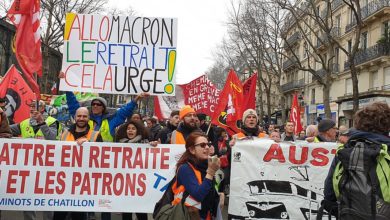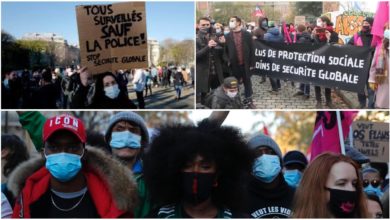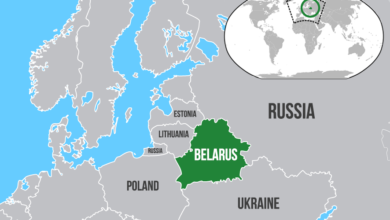In the course of the current global economic crisis, attacks against immigrants in Europe have reached a fever pitch.
Much like their U.S. counterparts, European capitalists are fueling anti-immigrant bigotry to create divisions among workers and detract attention from the real culprits behind the deepening crisis. As the ranks of the unemployed swell, the rich are increasingly reliant on these divisive tactics to prevent the anger of the working class from turning against them.
Immigration rates are intrinsically connected to deepening economic inequality, which forces workers to leave their home countries as a matter of survival. According to the United Nations, in 1913 the richest countries were 10 times wealthier than the poorest. By 2000, that difference had grown to 71 times. In 2006 there were almost 200 million international immigrants, more than double the 84 million of 30 years ago. (Yale Global, April 2006)
This past February, the Italian parliament passed a law that will allow medical doctors to contact law enforcement to report undocumented workers seeking medical care. The Italian news agency Adnkronos reported a decline of 10 to 15 percent in the number of immigrants seeking care the very same month the law was passed. The law will effectively keep countless immigrants from seeking medical treatment out of fear, and put those who do at risk.
But Italian politicians are not stopping there. The racist, anti-immigrant Northern League has proposed a bill in Parliament, which, if passed, will deport legal immigrants if they accumulate a certain number of “points” on their criminal records. The group is also behind a proposal to introduce classes exclusively for immigrants instead of allowing them to enter directly into the Italian school system. (UK Telegraph, March 24)
For her part, Education Minister Mariastella Gelmini recently proposed the implementation of a 30 percent cap on foreign students in Italian classrooms. The measure is set to be introduced on an experimental basis in the school year stating in 2009 and will become a requirement the following school year.
To be expected, the anti-immigrant demonization campaigns and racist legislation have had their anticipated effect: a dramatic increase in racist violence against immigrants. According to a 2008 New York Times report, a Ghanaian man, Emmanuel Bonsu Foster, 22, was injured in Parma in a fight with police; a Chinese man, Tong Hongsheng, 36, was beaten in Rome; a Somali woman, Amina Sheikh Said, 51,
was strip-searched and interrogated for hours at Ciampino Airport in Rome; and six African immigrants were gunned down in Castel Volturno.“There’s been a worrisome sequence of events, which can’t just be catalogued as isolated incidents,” said Jean-Léonard Touadi, Italy’s only Black member of Parliament and an immigrant from the Congo. Italy’s government “shouldn’t make this a war between poor Italians and poor immigrants,” Touadi added. (New York Times, Oct. 12, 2008)
In France, it is illegal to provide any assistance to undocumented immigrants. The annual quota for arrests for such “offenses” is set at 5,000 for 2009. The provision is reminiscent of aspects of the Sensenbrenner bill, which sparked the 2006 immigrant rights movement in the United States.
You say get back, we say fight back!
But all these reactionary laws have not gone unchallenged. In Italy, doctors have already held a demonstration stating loud and clear that they will not be spies for the implementation of the government’s anti-immigrant agenda. French humanitarian groups will demonstrate in front of courthouses around the country to protest the criminalization of assistance to the undocumented.
Immigrants and their supporters are fighting back on other fronts, too. In February 2008, a strike was organized by undocumented workers at a restaurant in Paris, resulting in the rapid legalization of seven undocumented workers. That spring, 1,000 more applications for legalization were made in the city, resulting in the regularization of 100 formerly undocumented workers.
Throughout the spring and summer of 2008, other undocumented workers went on strike, demonstrated in the streets and even occupied the premises of the Ministry of Labor, Social Relations and Solidarity.
The General Confederation of Labor (CGT), France’s largest labor union, has been an important supporter and leader of undocumented workers’ strikes and sit-ins all over France. Francine Blanche, a national officer of the CGT, calculated that almost 900 out of 1,500 applicants had obtained documents in the Île-de-France region by August.
Without the CGT’s invaluable assistance, many of the important gains made by the country’s undocumented workers would not have been achieved.
Solidarity a must for victory
However, the CGT has consistently worked in collaboration with France’s government. The local governments in France have insisted that all legalization applications be forwarded through the CGT, and the CGT has only been willing to take up the cases of unionized workers.
Consequently, many undocumented workers have been excluded from the application process. In the spring of 2008, when CSP 75 (the Central Paris Sans Papiers Coordinating Committee) had 1,000 applications for legalization rejected by the local government, they were told to work through the CGT, which refused to file the applications. In response, up to 300 CSP 75 members occupied the CGT building in Paris.
In order to most effectively fight the anti-immigrant backlash and the attacks on workers’ rights taking place around the world, it is necessary to unite on the broadest lines possible. Conceding to collaborations with governments and big business that limit the scope of the fight-back movement can only hold back potential gains to be made. Genuine solidarity among workers crossing national lines is essential if the workers’ struggle is to advance.






